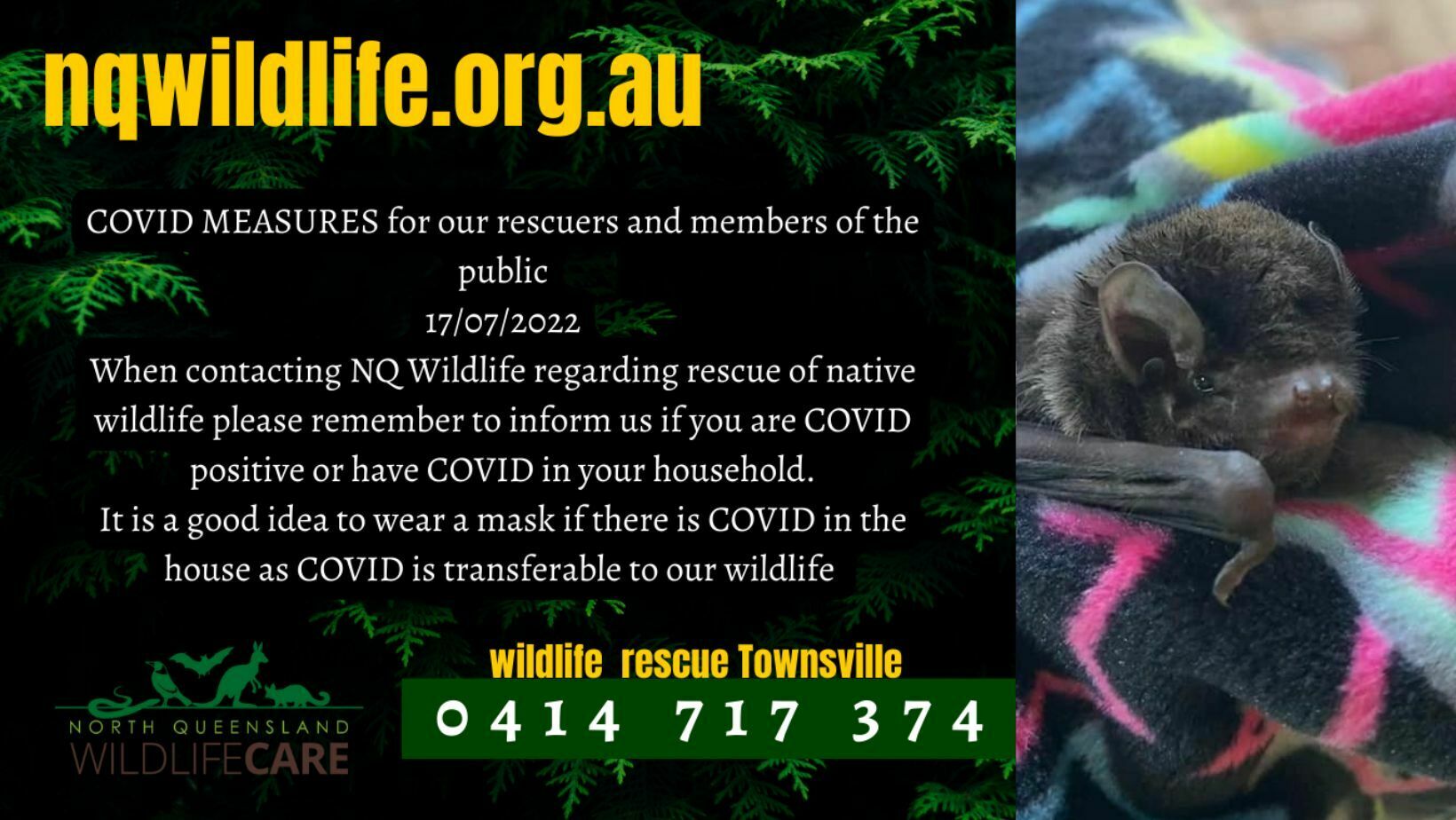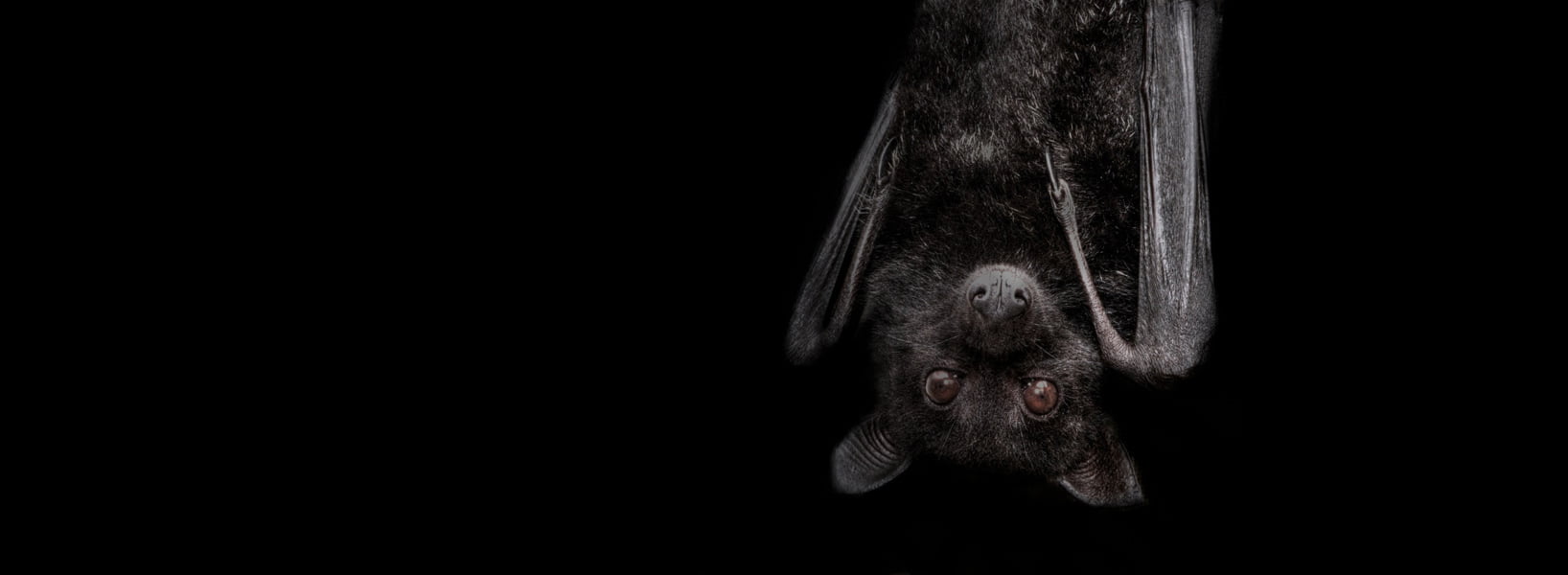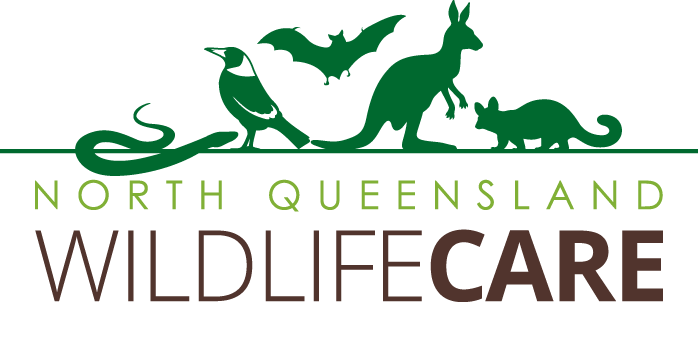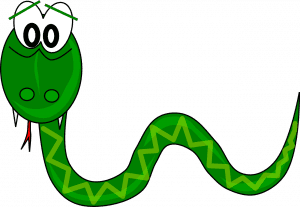0414 717 374
Townsville Wildlife
CALL for rescue & advice on injured wildlife.
If the animal is injured, unwell or seems to be unable to survive without intervention, please contact NQWC

When contacting NQ Wildlife regarding the rescue of native wildlife please remember to inform us if you are COVID positive or have COVID in your household.
It is a good idea to wear a mask if there is COVID in the house as COVID is transferable to our wildlife.
This is for the safety of our Rescuers who are volunteers & have families of their own, and the animal itself.
Townsville is experiencing another wave of COVID please be mindful that we are all volunteers.

Macropods Kangaroo family
Ive found an injured
Possums & Small Mammals
I’ve found an injured
Bats Flying Foxes
I’ve found an injured Bat or Flying Fox
Echidnas
I’ve found an injured Echidna
SNAKES REPTILES
I’ve found an injured
Birds
I’ve found an injured native Bird

Townsville Wildlife Rescue
What to do if you find a native animal in need of rescue
0414 717 374
Call for rescue & advice on injured wildlife.
Townsville Wildlife Rescue
If the animal is injured, unwell or seems to be unable to survive without intervention, please contact NQ Wildlife
We will rescue the animal or provide advice on how to rescue it. If you can transport the animal to a vet, your help will be much appreciated.
If the animal seems to be in good health, is not distressed, is in no danger, and is not a danger to people, the best advice is to simply leave it alone and monitor it from a distance.
If you are not sure whether or not it needs help, contact NQWC for advice.
SNAKES 
I’ve found a snake!
Always treat with caution. Most snakes are harmless but don’t find the exception the hard way!
If the snake is outside, not injured, and not in any danger, then leave it be.
Otherwise, contact NQ Wildlife Care on 0414 717 374 or Townsville Snake Catchers.
wILDLIFE RESCUE TRAINING
Volunteer AS A RESCUER
What are the main reasons for wildlife to come into care?
Life can be tough for wild animals in the wild. Many animals are injured by predators or starve to death and some young are abandoned by their parents. But for animals that live in urban and peri-urban areas, there are additional dangers caused by human-made changes to the landscape. Each year NQWC takes in over 3,000 PLUS sick, injured, and orphaned animals as a result of the following:
- Road accidents
This affects many species, including wallabies, possums, birds, turtles, and snakes. Most animals are hit by cars at night so it’s important to slow down after dark. - Dog and cat attacks
Domestic animals love chasing wildlife, but this game often results in dreadful injuries to animals. Wallabies are particularly at risk in semi-rural areas where irresponsible dog owners allow their animals to roam. In urban areas, it is cats that are the main predators of little birds. - Collisions with walls or windows
Birds (from finches to pelicans) and microbats fly fast and sometimes too fast to avoid hard structures. They may be lightly stunned or suffer severe head fractures. This affects mostly flying foxes but birds. Kangaroos, wallabies, and gliders are also known to get entangled in the ‘devil’s wire’. Injuries can be horrendous and, unless they are rescued, entangled animals suffer and die a miserable death. - Electrocution on powerlines
This affects mostly flying foxes but large birds like pelicans can also be affected. - Habitat destruction
Tree clearing conducted for urban development, as well as agricultural and industrial activities, have a massive impact on animals. This leads to birds, bats, and possums losing their nests or hollows. Animals displaced by clearing often wander on the roads or in other animals’ territory and are more vulnerable to starvation and predation. - Poisons
Poisons used routinely in the home such as cockroach bait, fly traps, snail bait, and rat baits can be fatal to wildlife. Please use safe alternatives! - Good intentions
Many baby birds are collected by well-intentioned members of the public because they look vulnerable and cannot fly. However, fledglings that are not injured should be left alone if their parents are around and feeding them. This is their best chance to grow up! - Seasonal conditions
During droughts, floods, severe winds, and cyclones, animals often come into care as they may have been displaced, blown off the nest, or pushed out of their normal environment in search of supplementary food and struggle to adapt to the new environment. - Public intolerance of wildlife
Animals may come into care when they have been kicked out of their ‘home’ by members of the public who do not want to share their space with wildlife. Remember that you need a permit to relocate wildlife, including snakes, possums, and microbats in the roof space.
Become a wildlife warrior
What does it take to become a Wildlife rescuer?
Compassion- handling and capture skills. knowledge on how to be first responders.
- Your first step is joining NQ Wildlife
- Step two – attend training
- Step three, make sure you prepare yourself for rescue/ Have the correct equipment ready in your car or very handy / nets/bags/gloves/blankets/ bags (for joeys
- NQ Wildlife can guide you and help you set yourself up to be a rescuer.
Get Involved
Vet Clinics
Thank you to the many veterinarian clinics who help our native wildlife
Give Today
$5
$10
$50
$250
$500
Other


